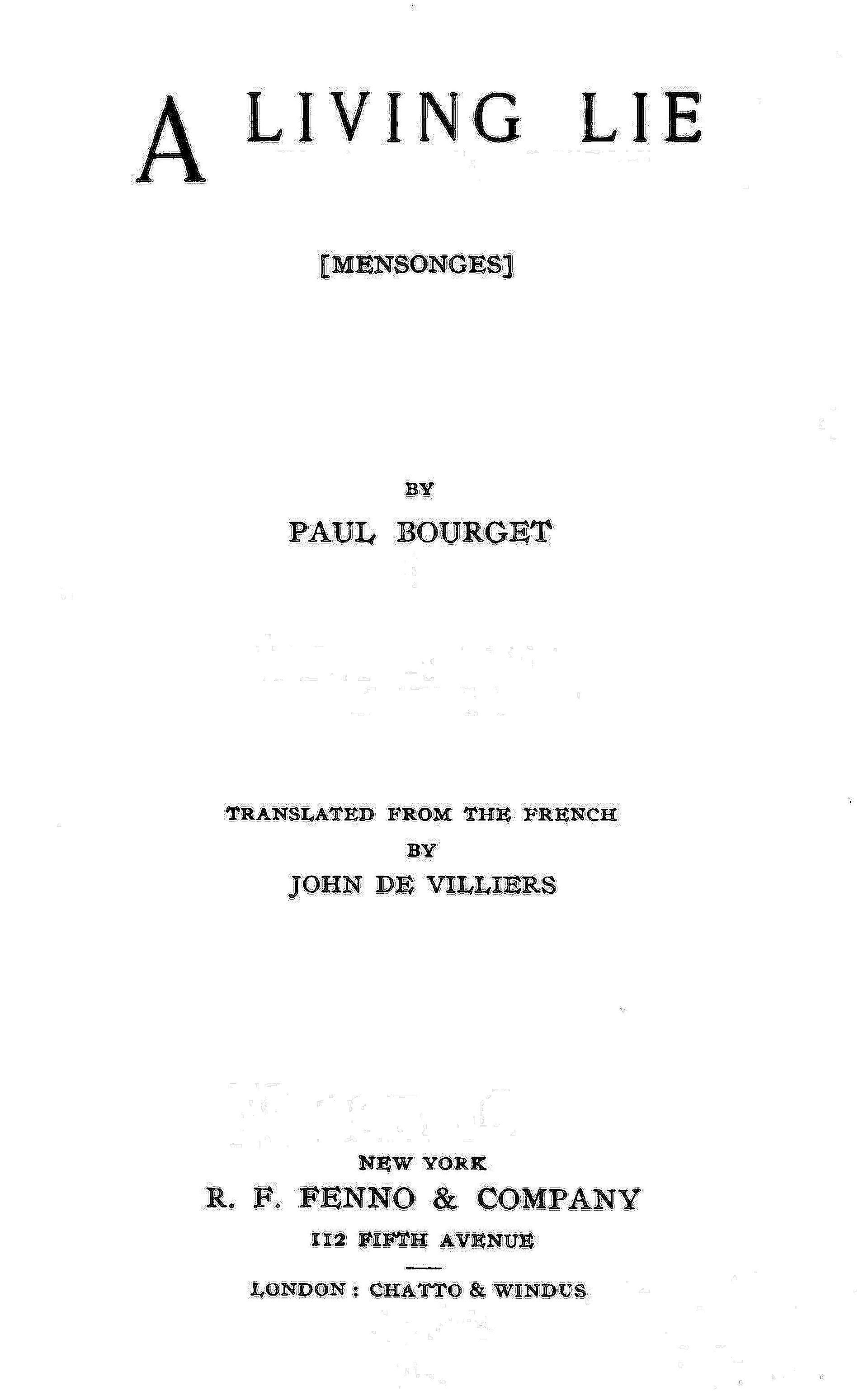
A LIVING LIE
(MENSONGES)
BY
PAUL BOURGET
TRANSLATED FROM THE FRENCH
BY
JOHN DE VILLIERS
NEW YORK
R. F. FENNO & COMPANY
112 FIFTH AVENUE
LONDON: CHATTO & WINDUS
CONTENTS
CHAPTER
I. A Provincial Corner of Paris
II. Simple Souls
III. A Lover and a Snob
IV. The 'Sigisbée'
V. The Dawn of Love
VI. An Observer's Logic
VII. The Face of a Madonna
VIII. The Other Side of the Picture
IX. An Actress in Real Life
X. In the Toils
XI. Declarations
XII. Cruel to be Kind
XIII. At Home
XIV. Happy Days
XV. Colette's Spite
XVI. The Story of a Suspicion
XVII. Proofs
XVIII. The Happiest of the Four
XIX. All or Nothing
XX. The Abbé Taconet
MY DEAR DE VILLIERS,
In the first place, you must let me thank you for having undertaken thetask of introducing 'Mensonges' to the English-reading public; and alsoexpress the hope that this novel, which is no longer new, may not causea recurrence of that misconception which too often arises when a workwritten in and for a Latin country is suddenly transplanted toAnglo-Saxon soil.
One of the most grievous results of such misconception, and one whichFrench writers—I speak from experience—feel most keenly, is thereproach of immorality. Balzac spent a lifetime in defending himselfagainst that charge; so it was with Flaubert; so it is with Emile Zola.I well remember how hurt I felt myself when, in the course of an actionbrought some ten years since against a publishing firm in London—whohad, by the way, issued a translation of the work without mypermission—'Un Crime d'Amour' was harshly spoken of by one of yourjudges. Not only then, but on many occasions, have I had an opportunityof remarking that the English regard the novelist's art from astandpoint differing entirely from that taken up by French writers. Thatdifference is well worth dwelling upon here, for the problem it raisesis neither more nor less than the problem of the whole art ofnovel-writing.
To French writers—and I refer more particularly to the great schoolwhich follows Balzac and Stendhal—the first quality of that art isanalytical precision. Balzac called himself 'a doctor of socialsciences.' Stendhal-Beyle, when asked his profession, used to reply,'Observer of the human heart'; and upon the title-page of 'Rouge etNoir' he wrote as a motto the significant words, 'The truth, the uglytruth.' Every word of Flaubert's correspondence breathes forth theconviction that the novelist must always and before all else paint lifeas it is. These writers and their disciples do but follow, consciouslyor unconsciously, t